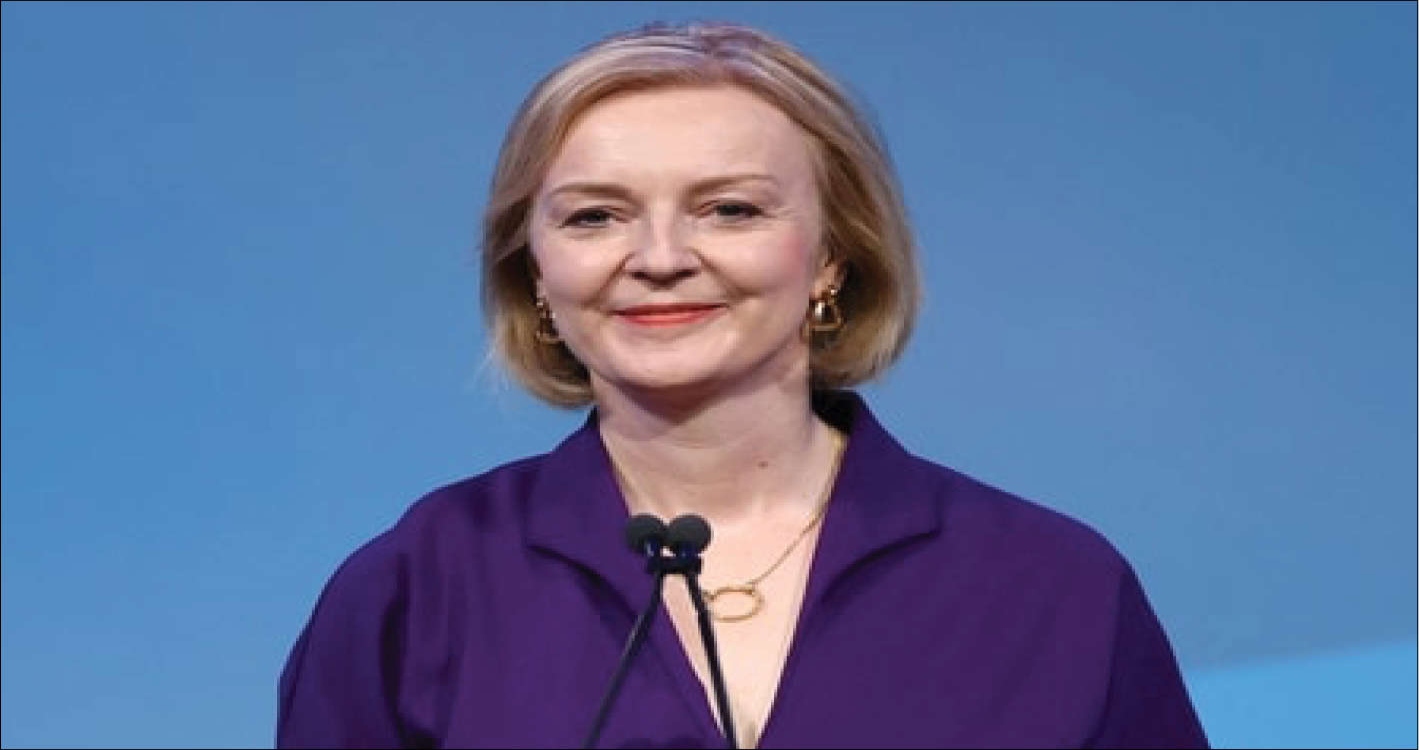


Britain now has a new prime minister. Six gruelling weeks of the Conservative Party’s leadership race ended on 5 September with Liz Truss being declared the winner. She beat her opponent, Rishi Sunak, by securing 57.4% of the vote, compared to his 42.6%.
That is not quite the landslide Truss would have hoped for. After all, Boris Johnson won his 2018 leadership race over Jeremy Hunt with more than twice as many votes and even David Cameron won over David Davies in 2005 with a margin of 2:1. So the kind of decisive victory her predecessors enjoyed has certainly eluded her. Not the best of starts for Truss, but that is not it.
The coveted invitation from Buckingham Palace marks the pinnacle of any British politician’s career. Sadly, there was no such theatrics this time. No cameras panning out of the Palace gates as the outgoing and incoming prime minister’s convoy whizz through in short intervals of one another. Instead of that usual 10-minute trip from Downing Street, Boris and Truss took a 1000-mile round trip to Scotland. Owing to advanced age and mobility issues, for the first time in her 70-year reign, Queen Elizabeth II broke with tradition to receive the outgoing prime minister and appoint the next from her holiday retreat, Balmoral Castle, instead of Buckingham Palace.
What should be alarming is the mess she is about to inherit. A soaring cost of living crisis, falling GDP, rising inflation, unabating industrial unrest, skyrocketing energy bills and a deeply divided Tory party after this bruising campaign. With dire warnings from charities about destitution for many Britons and gloomy forecasts of a worsening economy, getting through the winter will be the biggest challenge. Long-term and short-term policy measures must be devised to tackle these issues. This will inform her priorities as far as the domestic front is concerned.
She also has the unenviable task of winning the support of the people and Parliament. People, because she has not been elected to the high chair through a general election. Instead, she is elected as the leader of the party holding the majority in Parliament. Boris still had two more years to go but had to step down after the unending list of scandals that plagued his premiership. Since only the rank and file of the Conservative Party were allowed to vote to select their leader, Truss comes to power after being elected by less than 1% of the population. As the party leader also happens to belong to the party that holds the majority in Parliament, she automatically becomes prime minister and will complete the remainder of Boris’s term. She could, of course, call a general election, but she has ruled that out. After 12 years of a Conservative government, reaching out to a weary wider audience beyond the Tory party members is going to be an uphill task.
Turning to her parliamentary colleagues would provide her little respite. Rishi, not her, was the most favoured candidate for her fellow Tory MPs. One of the UK’s leading think-tanks, the Institute of Government, has said that Truss has a weaker starting point than any of her predecessors. Whilst the party still holds a comfortable majority, it is deeply divided on ways to tackle the economic crisis. Team Truss has always supported slashing taxes whilst Team Rishi campaigned against it, vowing for a more balanced ledger. How the two camps might work together is perplexing. She now has the task of forming her new cabinet and faces Parliament, which reconvenes after the summer recess. Her political astuteness is sure to be judged in the coming days.
If these domestic matters seem too burdensome, she might take some solace in dealing with matters of international affairs, her supposed area of expertise. She had been the foreign secretary for almost a year. With a war on European soil for the first time in decades, her mettle is to be tested. She had already faltered on the question of providing weapons to Taiwan in a televised Sky News debate by Kay Burley, failing to provide a clear policy stance.
As to her relationship with India, if anything is to be judged by her past actions, no one can forget the epic faceoff she had with India’s External Affairs Minister S. Jaishankar. During her India visit this March, she became part of a viral video when Jaishankar reprimanded Europe for continuing to import Russian energy whilst advising the rest of the world against it. But she seems to have not taken any ill will and had expressed her desire for a trade deal with India before Diwali, which seems unlikely. The end of 2022 appears to be a more realistic deadline, but much work is to be done. She has particularly expressed keen interest in substantial trade deals with India’s defence sector. However, when it comes to Indian students, she does not seem to support any specific policy changes in the UK visa system that may benefit them.
Judging from her first speech in front of 10 Downing Street, international relations hardly featured and seemed to take a back seat at the moment. Domestic issues loom large over Britain’s third woman prime minister. Whilst enthusiasm, idealism, promises, pomp and ceremony might mark her first few days, she is bound to find her early zeal tempered by the realities of office.
Ajay Gokul S is the Founder of Global Madras, a student-led think-tank.